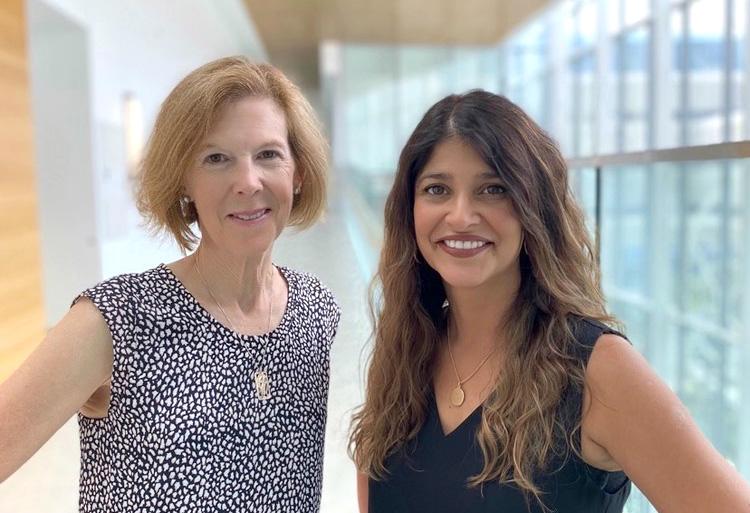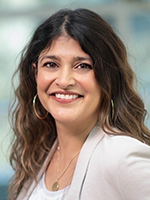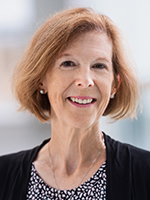
Future plans focus on expanding educational and community initiatives to advance brain health across the lifespan.
Vancouver Coastal Health Research Institute researchers Drs. Lynn Raymond and Shernaz Bamji have been re-appointed as co-directors of the Djavad Mowafaghian Centre for Brain Health, which celebrated 10 years of excellence in research, education and clinical care in 2024.
The Centre represents a partnership between Vancouver Coastal Health (VCH) and the Faculty of Medicine at the University of British Columbia (UBC), bridging basic science and clinical care, and providing opportunities for education, collaboration and interaction with patients from across British Columbia. By attracting top research talent, the Centre drives cross-disciplinary research that generates impactful, translational findings to improve patient well-being.

Over the next five years, Bamji and Raymond will continue to build on the Centre’s global reputation for advancing brain research in the fields of neuroscience, neurology, psychiatry and rehabilitation. The Centre is currently in consultation with various stakeholders to develop a cross-faculty School of Neuroscience at UBC.

“The School of Neuroscience at UBC would allow us to attract the best and brightest students, and provide a world-class, multidisciplinary educational experience for the next generation of scientists,” notes Raymond. “It would be only the second School of Neuroscience in Canada, and is well-positioned to grow into a global leader in the field of neuroscience.”
Training the next generation of neuroscience researchers
With over 150 foundational and clinical scientists, the Centre offers extensive research and clinical training. Thousands of trainees in neuroscience have engaged in research experiences at the Centre over the past decade in both laboratory and clinical settings. The Centre also encompasses seven clinics and the Brain Wellness Program, which provides lifestyle and exercise programs to over 2,000 people across B.C.
“We strive to provide enriched learning opportunities both inside and outside of the Centre, fostering high-quality research training for the next generation of neuroscience researchers,” says Bamji.
“Our primary goal is to expand educational opportunities to achieve global excellence in advancing brain health across the lifespan.”
Partnering with local and international organisations, the team has also laid out plans to deepen reciprocal relationships with VCH communities of care through community-based research, outreach programs and knowledge-sharing.
“We will continue to strengthen our equity, diversity, inclusion and anti-racism efforts to create respectful and safe environments for research and community engagement.”
“We are also committed to celebrating our team, fostering a culture of respect, inclusiveness and recognition through awards and accolades,” adds Bamji.
Building on a strong foundation
Raymond and Bamji’s leadership builds on their prior roles as director and associate director of the Centre, respectively, from 2020 to 2024.
“Initially, our main goal was to build community at the Centre, especially between clinicians and preclinical discovery scientists, with the overall goal of driving translational research,” notes Raymond. “Preclinical research drives treatment discovery, and supporting this work is essential to improve patient care and outcomes.”
In their first term, the pair established five integrated research programs to advance translational research and, ultimately, improve patient care. The five programs are: 1) learning/memory and dementias, 2) mental health and addictions, 3) brain development and neurodevelopmental disorders, 4) brain injury and repair 5) and sensory/motor systems and movement disorders.
“We also introduced Kickstart Grants to encourage collaborations between clinicians and researchers, providing $2 million in funding to date for interdisciplinary research projects,” adds Bamji.
In 2023, Centre members secured over $70 million in research funding and published over 1,000 papers, including 163 B.C.-based collaborative studies and 915 studies in collaboration with national and international partners. Centre clinics also conducted over 20,000 patient visits and established new guidelines for treatments in mental health and neurological disorders.
Learn more about the Centre in its recent strategic plan.


